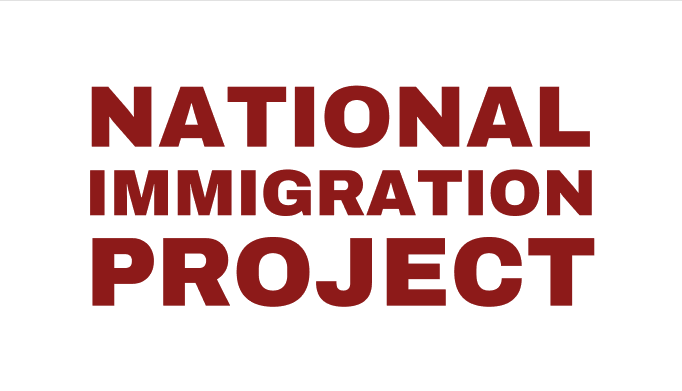We need to talk about safety. Two weeks ago, Senators attempted to amend the minibus spending package with several anti-immigrant bills, including one that would have expanded the already broad mandatory detention laws (which subject immigrants to being held, usually in private prisons, with no option for release) to people who had merely been arrested for shoplifting. That bill was named for Laken Riley, the Georgia woman who was murdered earlier this year. You may know her name, because unscrupulous lawmakers like Marjorie Taylor Greene insist on exploiting her awful, tragic death in order to score political points by fomenting hatred for immigrants. It’s cynical, it’s disgusting, and it’s working. Lawmakers whom we usually rely on to defend - or better yet, improve - the status quo, instead offered “alternatives” that would have gutted hard-won sanctuary city policies across the country. That is, they conceded the bad actors’ hateful, false premise, choosing to ignore the facts and data in front of them and instead scapegoat immigrants.
The current discourse around crime and immigration seems immune to facts, but the moment requires a serious response and not merely capitulation, so here goes: violent crime in the United States is falling again, rapidly, and the trendline has reverted to the pre-pandemic hopeful downward slope. Moreover, violent crime is not higher in states with more progressive criminal justice and immigration policies, like sanctuary city policies. In fact, the opposite is true, even accounting for larger cities within so-called “red” states.
Individual tragic events, like what happened to Laken Riley, do not change any of these data, nor some other basic facts about the United States: the large majority of violent crime is perpetrated by family members or people known to the victim, and your access to safety depends very heavily on your age, race, class, and dumb luck. The rhetorical use of random violence against a very small number of white women to justify violence against a whole class of people is literally a lynch mob mentality.
There’s another false premise too-credulous politicians and media outlets also fail to refute, when they accept and respond to disingenuous claims about immigrants and crime: that immigrants are not also part of their communities, and that they are not also invested in and creating safety. Nothing could be further from the truth – whether or not they were born here, immigrants also live here and want and strive as much as anyone else does for their families and themselves to be free from harm. My colleague recently described this as “co-stewardship,” and I love that formulation. We all have a responsibility to our community and our community only exists out of what we all do to steward it. The “we keep us safe” approach of the abolitionist movement is more than a slogan; it is a practice that recognizes that people need each other, and that everyone is safer when we all have enough to thrive, when we know each other, and when vibrant communities come together to enjoy well-kept public spaces. Safety is an absence of hunger; the presence of libraries; it is an abundance of possibilities and the promise of a future; it is care and nurturing and health. Three more data points, for those so inclined: adding street lights, expanding Medicaid, and decreasing evictions all have positive effects for neighborhood safety.
However, it is hard to fight feelings with data, and it is clear that people currently feel unsafe. Some of that is due to a conflation of poverty, homelessness, and drug use with street safety; some of that is rooted in racism. Regardless, it is in the interests of unscrupulous politicians, powerful corporations, and the wealthy to capitalize on those feelings and to reinforce ideas that people are unsafe because of immigrants, because it is in fact the unscrupulous politicians, powerful corporations, and the wealthy whose actions and inaction endanger us all.
Because there are real threats to our safety, and some feelings of danger have merit. We are daily facing natural disasters and extreme weather that bring home for us the fragile state of our rapidly deteriorating environment. Inflation and profiteering, combined with abysmal policies, have led to a housing crisis in almost all 50 states; rent and every other basic cost of living is on the rise, while real wages have decreased over the past several decades. Homelessness and drug use and poverty are threats, just not in the way people seeking to punish and control people suffering them imagine. Rather, they could come for us all. As could despair – after all, over half of gun deaths in the U.S. are suicides.
The real wolves at the door demand a collective response, not one based on lies and the fears they inflame. We’re all in this together, and the “us vs. them” mentality that the racist crime narrative encourages only serves to make all of us less safe.
